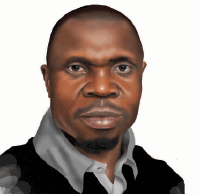A Walk to Remember, as used in this headline, is the title of a beautiful writing by Nicholas Sparks. Life is a walk. Life is a sentence. Life is an expression. When it ends, you are either remembered for accomplishing the walk, being consumed by the walk; or both.
Death, why? Why should you visit us at a time like this? Can somebody tell me in convincing terms why Comrade Uche Chukwumerije should die when his voice is most needed and his towering presence most desired? No, death, once again, has been unfair to us.
It was Christopher Pike in his The Last Vampire who said death never comes at the right time, despite what mortals believe. Death always comes like a thief. He is absolutely right.
No one has ever told me the right time for anybody to die: should it be in the thick of unprecedented popularity—like when Martin Luther King Junior took the American civil protest by storm and caused racist Americans midnight headaches?
Or should death come when a third world country soccer team does the unimaginable by winning the World Cup using its home-based players? When should death come to man?
I need an answer. When is death sweet to come? Is it when one has reached a grand old age of 98; or has done what Nelson Mandela did – escape the captivity of racism, achieve an unthinkable political fame and become a great grandfather?
Who is that man or woman that has ever said: “I’m ready to die; I prefer death to life?” The truth is that no one is ever ready to die. No matter the pains of sickness and the peace of death, given a chance, every sick person would embrace a cure in place of death.
Carol Rifka Brunt, in her Tell the Wolves I’m Home, says the secret to not regretting death is: “If you always make sure you’re exactly the person you hoped to be, if you always make sure you know only the very best people, then you won’t care if you die tomorrow.”
The bearded writer, Aleister Crowley in his: Diary of a Drug Fiend, states that every human being must conquer life by living it to the fullest, “and then we can go meet death with a certain prestige.” In a way, though not fully, Chukwumerije did just that.
Chukwumerije as a senator was every reporter’s delight except you lacked the intellect to absorb his philosophical thoughts. He was never used to talking for the sake of talking. He only spoke based on the need to do so. Here was another Chuba Okadigbo.
As a reporter, it was in the Senate that I had a close but professional relationship with Chukwumerije. During the struggle against third term, he was the voice; he was the man; he was the struggle. He raised propaganda from the realm of information manipulation to the pinnacle of war strategy.
The last time I met the Comrade was aboard a flight from Lagos to Abuja. I was simply walking past when he grabbed me from the side and said: “You this bourgeoisie, so you also fly?”
We chatted briefly; and when we touched down in Abuja, he tried to give me an interview appointment that did not eventually hold because of his involvement in Senate Committee assignments. We later spoke on phone and promised to keep talking. Now we can’t talk again.
Death has cut a sweet sentence short. The death of Chukwumerije is like ending a sentence before a full-stop. He was a candle in the dark theatre of our politics. Tell me, darkness is still here; why should the candle be put off?
On Thursday evening, when I read Henry Scott Holland in his: Death Is Nothing at All, it quickly dawned on me what the answer would be if one were to ask Chukwumerije today: how does it feel to die; or what does death mean to you?
His answer would be, in the words of Holland: “Death is nothing at all. It does not count. I have only slipped away into the next room. Nothing has happened. Everything remains exactly as it was.
“I am I, and you are you, and the old life that we lived so fondly together is untouched, unchanged. Whatever we were to each other, that we are still. Call me by the old familiar name.
“Speak of me in the easy way which you always used. Put no difference into your tone. Wear no forced air of solemnity or sorrow. Laugh as we always laughed at the little jokes that we enjoyed together. Play, smile, think of me, pray for me.
“Let my name be ever the household word that it always was. Let it be spoken without an effort, without the ghost of a shadow upon it. Life means all that it ever meant. It is the same as it ever was. There is absolute and unbroken continuity.
“What is this death but a negligible accident? Why should I be out of mind because I am out of sight? I am but waiting for you, for an interval, somewhere very near, just round the corner.
“All is well. Nothing is hurt; nothing is lost. One brief moment and all will be as it was before. How we shall laugh at the trouble of parting when we meet again!”
Hmmmm! The flame may be gone; but the sparks still remain. Chukwumerije lives.













